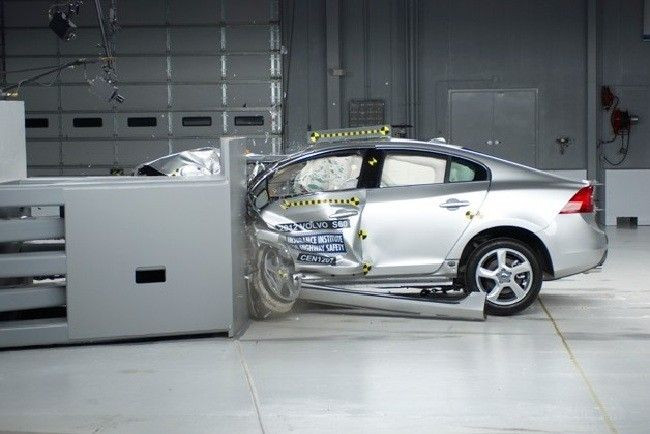
Cars that were developed during the turn of the millenium already benefit from a century of technological advancement and were built to meet only the highest levels of occupant safety.
One would think that there's only so much left to perfect in vehicular safety and that any new idea could only stand to make small, incremental, near insignificant improvements. One would think.
According to an internal review of accident data from Volvo, the risk of being injured in a current-model Volvo is a staggering 50 percent lower than that of Volvo vehicles made in the year 2000.
Sure, Volvo has established a reputation of building the safest cars of the industry but in fact, much of the improvements are thanks to the great advances in safety technology in the auto industry as a whole over the last decade.
Case in point, advanced safety features including electric stability control, adaptive cruise control, automatic braking, lane departure warning and blind spot detection were only available in the most premium of luxury vehicles. In fact, some examples that were listed did not exist at all ten year ago. Today, most of these technologies can be found as standard equipment in the most mainstream of models.
According to Swedish insurancy company Volvia and U.S.A.'s Insurance Institute for Highway Safety (IIHS), advanced autonomous braking systems can effectively lower low-speed frontal collision incidents by 22 percent. Adaptive cruise control and collision warning systems reduce collisions by 42 percent, and future technologies such as pedestrian safety systems drop the number of tragedies even further. In fact, the new Volvo V49 is the industry's first automobile to offer a pedestrian airbag and pedestrian detection system that will apply full brakes and deploy external airbags as necessary in the face of imminent impact.
For the long-term, Volvo aims to eliminate occupant injury completely. By 2020, Volvo aims to produce vehicles that assure no occupant in a new Volvo will ever suffer serious or fatal injuries as a result of a collision ever again.
Seriously, how great is that?!



